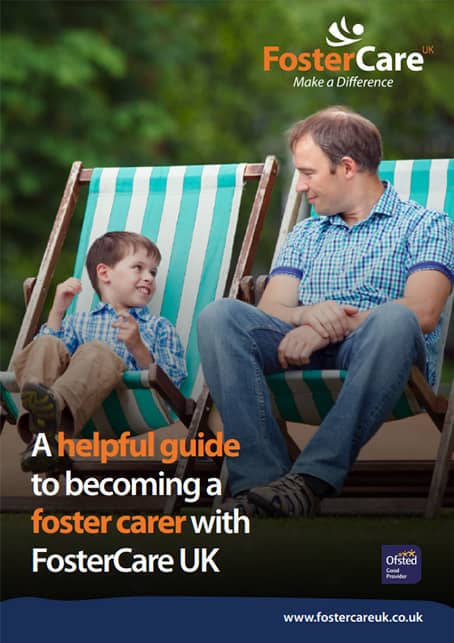


What happens when a child is taken into care?
Benefits of being a foster parent
What is a care leaver?
How to become a foster parent
How to foster a child
What are the foster care requirements
Can I choose who I foster?
Fostering with pets FAQ
How long does it take to become a foster parent?
What is the role of an independent fostering agency?
Fostering a disabled child
Tips for coping when foster placements end
Do foster carers pay tax?
What to expect in a fostering assessment
Common Fostering Challenges and Solutions
What disqualifies you from being a foster carer?
Muslim Fostering
Fostering as a single parent
Can you foster a child with a criminal record?
Can you work and foster?
Top 10 fostering myths
Can I foster if…?
Can I foster and rent?
LGBT Fostering: can I foster if I’m gay
Top transferable skills to become a foster carer
Can you foster with a mental health condition?
Christian Fostering
Sikh Fostering
Cultural Diversity in Foster Care
How to encourage foster children to read
Reasons for a child to be taken into care
Tips for coping with attachment disorders in Foster Children
Fostering vs Adoption
What happens when foster parents get divorced?
What is reunification in foster care?
How to deal with foster child bullying
A guide to the foster care handbook
Guide to fostering young children
Types of self-harm
A guide to fostering teenagers
What are the signs of depression in foster children?
Mother and baby foster placements, also known as parent and child fostering, is a common type of foster care. As a mother and baby foster carer, you would be allowing a family the opportunity to stay together during a difficult period of time. This type of fostering is a specialist type, which requires specialist training, as it involves taking care of both a young baby and a young mother or parent.
Fostering young mothers and babies refers to a type of fostering placement where the mother or father, or in some cases, both parents, are placed into foster care alongside their baby, child or children. Typically, this sort of situation arises when a mother or parent is in a difficult situation in which they are unable to care for their child. It’s not unusual to see that the mother is still a young person herself, and potentially still in the foster care system.
This situation could also occur if the mother, or parent, is not be ready for the responsibility of having a child. Family support and guidance is integral to a young mother – and it may be that they are short of this. That’s where parent and child fostering can step in to help facilitate positive change to a mother and baby’s life.
Fostering young mothers and babies can be an extremely rewarding type of foster care as, not only are you taking care of a young baby, but you’re showing a young person in need how to care for their own child and teaching them life skills.
There are various reasons as to why a mother and baby may be in care - there could be concerns for the parent’s safety and they both need a safe space to stay. There could be concerns over the mother’s parenting, as she may need additional support from both foster parents and social workers. Some mothers that come into fostering placements may have a history of drug or alcohol abuse, or they may have had a child before that have previously been taken by care. Therefore, social workers may feel that they are in need of an assessment, to see if their parenting skills are sufficient – this may be the case if the parent has displayed a lack of co-operation before.
Many of the mother and baby placements will most likely be a young person who hasn’t had any previous experience with children. There could also be concerns over the parent’s own self-care, or they could have a learning difficulty or developmental issue which means they are unable to conduct their own self-care. Whatever the scenario, FosterCare UK is onboard to help you with specialist support to best facilitate your mother and baby placement.
Generally, a parent and child fostering allowance will be provided to cover the financial responsibilities of caring for a child. This is typically an independent financial cost that will be given to the parents in care to learn the basics of being able to effectively handle money and provide them with a taste of independence.
However, it’s important to note that this allowance does not come of the standard fostering allowance that the carer would be provided with to care for the mother and baby. Learn more about how much foster parents get paid from our detailed guide.
Looking to find out more information about mother and baby foster placements? Get in touch with a member of our helpful team.
If you’ve got any questions or would like to find out more about fostering with Capstone, fill out the form below.
An experienced fostering advisor from your local area will then be in touch.

Start the conversation today. Our team of friendly advisors are on hand to answer any foster care questions you may have. We can offer you honest and practical advice that can help you decide if becoming a foster carer is the right path for you.


